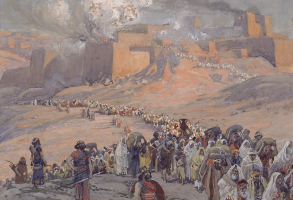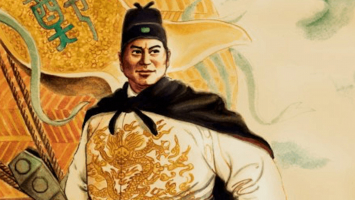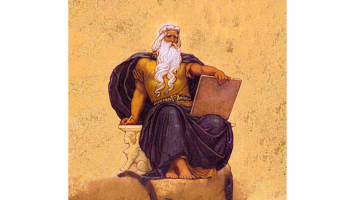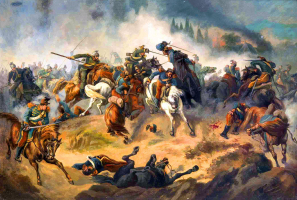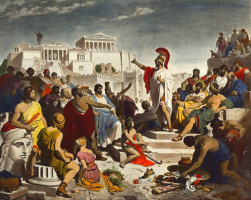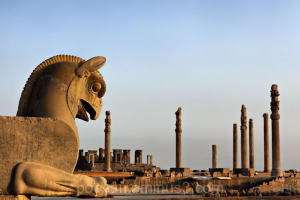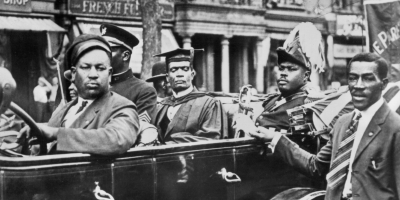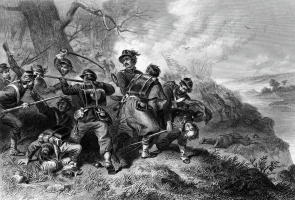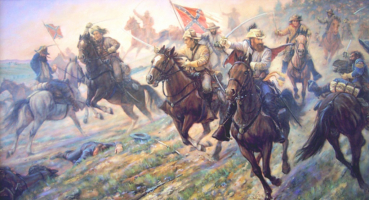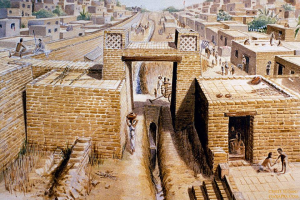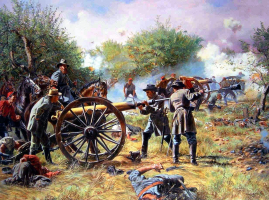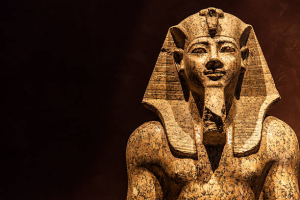Top 10 Facts About The First Roman Emperor - Augustus
Augustus Caesar was born Gaius Octavius and was also known as Octavian. He is best remembered for changing the Roman Republic, which had been plagued by civil ... read more...wars, into a stable monarchic Empire that lasted for over 1400 years. After Julius Caesar's death, Octavian rose to prominence as consul and then a member of the Second Triumvirate. He became the undisputed ruler of the Roman Empire after defeating Mark Antony at Actium in 31 AD and was given the title Augustus in 27 BC. He governed for 41 years, beginning in 27 BC and ending in 14 AD. These ten facts about the first Roman Emperor will teach you more about Augustus Caesar's family, life, rise to power, significant wars, reign, and death.
-
The last of these facts about the first Roman Emperor is Augustus founded the Roman Empire in 27 BC and became its first Emperor. The Roman Senate bestowed the title of Augustus on Octavian on January 16, 27 BC (the illustrious one). At the same time, Augustus demonstrated that he had restored full power to the Roman Senate, restoring Rome to its former status as a republic. Augustus, on the other hand, was the Roman Empire's de facto authoritarian ruler. He had several powers granted to him by the Senate for life, including supreme military command. In comparison to Augustus's twenty legions, the Senate only had the authority of five or six. The Principate, which lasted from 27 BC to 284 AD, was the first phase of the Roman Empire. The emperors marked the Principate by sustaining the Roman Republic's idea of continuity.
His authoritarian administration was known as the principate because he was the princeps, or first citizen, in charge of the array of seemingly resurrected republican institutions that made his dictatorship attractive. He overhauled every element of Roman society and brought lasting peace and prosperity to the Greco-Roman world with boundless patience, skill, and efficiency.
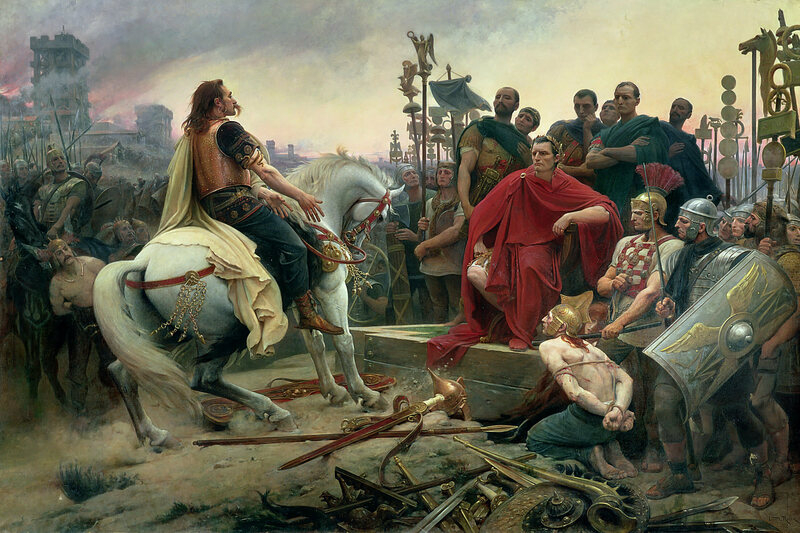
Photo: https://www.atlasobscura.com/ 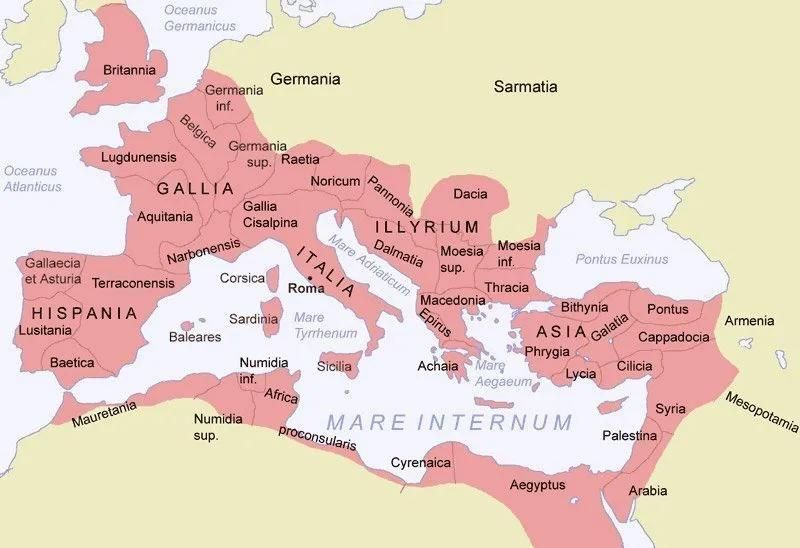
Photo: https://www.rome.net/ -
The first of these facts about the first Roman Emperor is Augustus was not his birth name. Gaius Octavius was his birth name, but after being adopted by his great-uncle, he changed his name to Gaius Julius Caesar Octavianus or Octavian. The Senate gave him the name Augustus, which means "Revered One," seventeen years later. Throughout his life, he also acquired several titles, including pontifex Maximus (top priest), princeps (first citizen), imperator (commander in chief), and divi filius (son of a god), the latter of which he assumed following the Senate's deification of Caesar. Augustus was notable for never referring to himself in monarchical or dictatorial terms, and he lived in modest lodgings. Historians refer to him as Rome's first emperor because he accumulated absolute power.
Augustus was known by numerous names throughout his life as a result of Roman customs, society, and personal preferences:
- Octavius Gaius Octavius added the surname Thurinus to his birth name as a newborn, according to Suetonius. Later, after assuming the name Caesar, his rival Mark Antony mocked him by referring to him as "Thurinus." He simply stated that he was astonished that "using his former name was deemed to be an insult" response.
- Gaius Julius Caesar Octavianus: He adopted his adoptive father's name, Julius Caesar, but was more often known as "Octavianus," the adjectival version of "Octavius." For the period between 44 and 27 BC, he is mostly known as the anglicization "Octavian."
- Caesar, Imperator: Octavian abandoned all of his names except "Caesar" from 38 BC onwards, and began using the victorious title imperator ("commander") instead of the conventional Roman forename.
- Imperator Caesar Augustus: Following his defeat of Mark Antony and Cleopatra in 31 BC, the Roman Senate awarded him the additional name "Augustus" on 16 January 27 BC, partly at his request. From 27 BC till his death in AD 14, historians refer to him by this name.
Octavian instituted the principate, a type of monarchy headed by an emperor who holds power for life, rather than following Caesar's example and becoming a dictator. His powers were concealed by constitutional procedures, and he adopted the name Augustus, which means "lofty" or "serene." Despite this, he remained in complete control of the Roman state, with the army under his direct command.
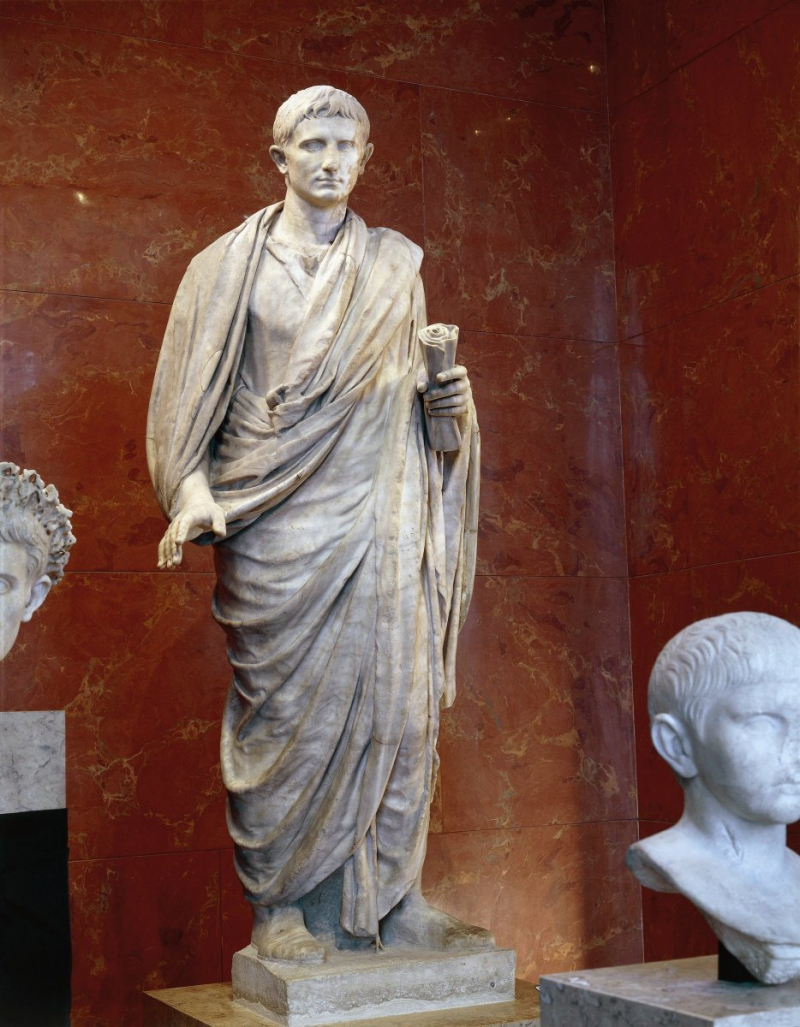
Photo: https://www.history.com/ 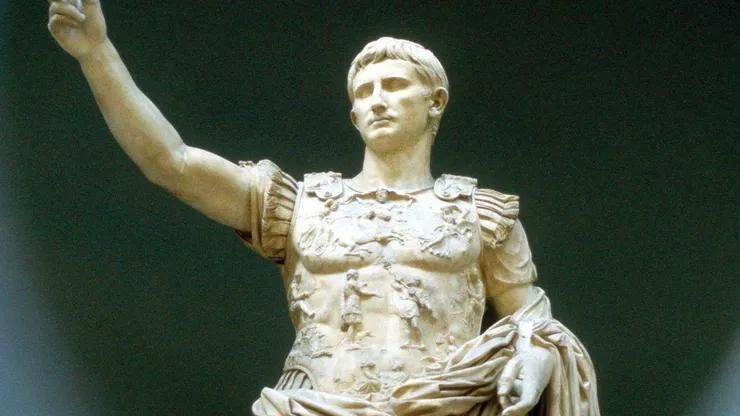
Photo: https://www.britannica.com/ -
Julius Caesar had to go elsewhere for his much-desired heir after his sole legitimate daughter, Julia, died in childbirth. His great-nephew turned out to be a perfect choice. Gaius Octavius was born in 63 BCE and spent most of his childhood away from his renowned relative, Caesar, who was engaged in conquering Gaul. The boy's protective mother forbade him from accompanying Caesar on his expedition. She eventually yielded, and Octavius finally left Italy in 46 BCE to visit his famous relative. Caesar was in Spain at the time, conducting war against Pompey the Great.
However, Octavius was stranded in a hostile area on his journey to Spain. Despite this, the young man (who was 17 at the time) negotiated the treacherous terrain and arrived at Caesar's camp. His great uncle was so delighted by the act that he began to prepare Octavius for a political career. Then, in 44 BCE, Octavius received word of Caesar's assassination while undergoing military training in Apollonia (modern-day Albania). He fled to Rome, fearful for his safety and future. Imagine Octavius' amazement when he learned that Caesar had adopted him and named him as his sole successor. Octavius was given the name Gaius Julius Caesar when he was adopted, but we know him as Octavian.
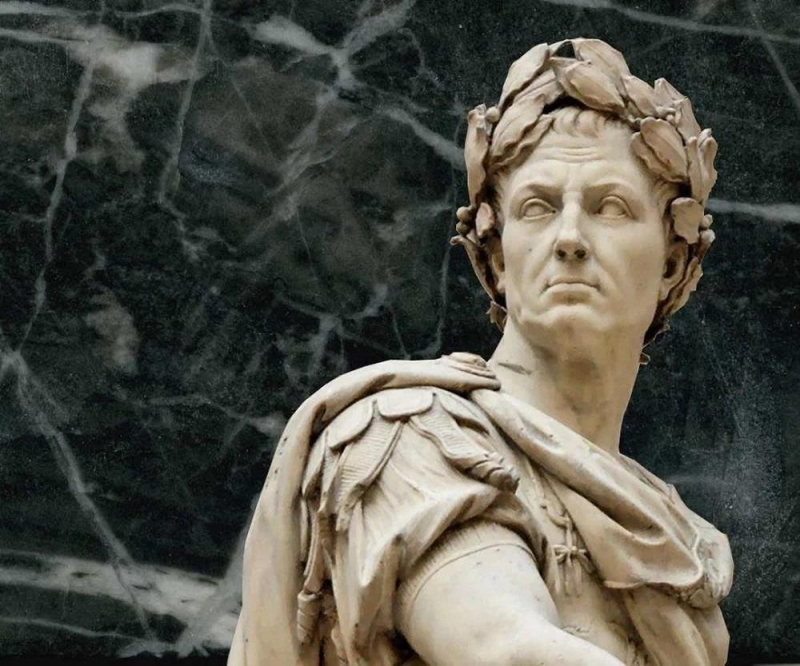
Photo: https://soha.vn/ 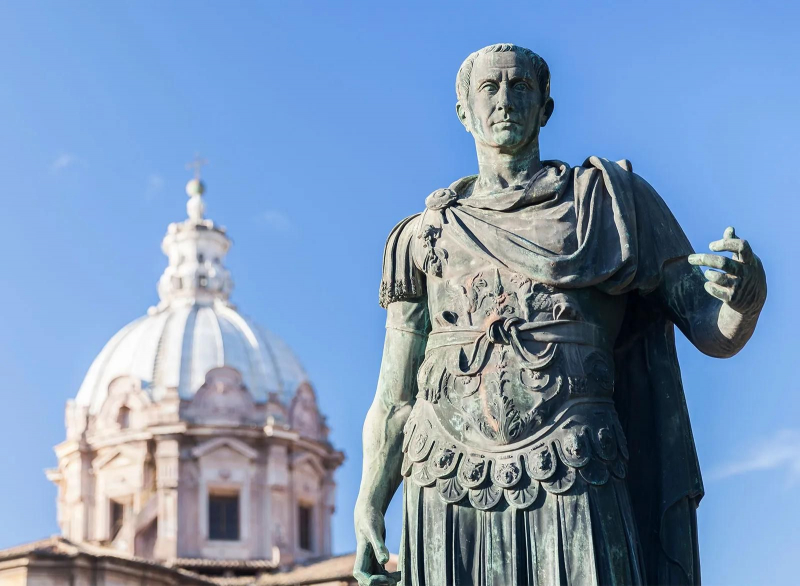
Photo: https://www.britannica.com/ -
The adoption of Octavian sparked a power struggle. What began as a vengeance expedition against Caesar's assassins quickly turned into a violent civil war between Octavian and Mark Antony. Octavian became the sole ruler of the Roman world after his victory at Actium in 31 BCE. The Republic was soon defunct, and a new polity, the Roman Empire, took its place. The Senate bestowed the titles of Princeps ("first citizen") and Augustus ("the famous one") on Octavian in 27 CE. Despite becoming the first Roman emperor, Augustus was careful not to brag.
The Romans have an aversion to absolute rule since the expulsion of their last monarch. This was something Augustus was well aware of. As a result, he tried to depict himself as a reluctant ruler, someone who did not crave authority for its reason. Augustus never referred to himself as a monarch and lived in lowly surroundings (a stark contrast with his successors). Despite this, he ruled the Empire with ultimate power. In the Republican period, the title emperor (imperator) came from imperium, a power that provided its holder authority over a military unit (or numerous). With the fall of the Republic, Augustus became the sole possessor of the imperium maius, granting him a monopoly over the whole imperial force. Whoever commanded the legions was in charge of the state. From Augustus onwards, the title imperator was bestowed upon Roman monarchs upon their succession.
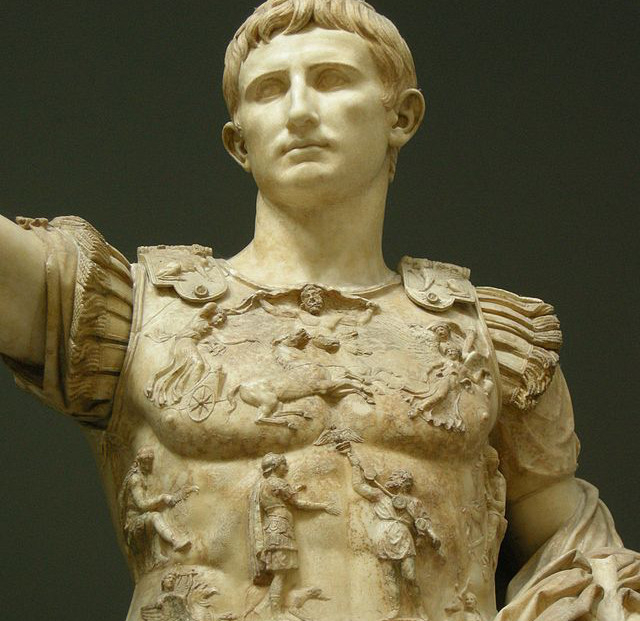
Photo: https://origins.osu.edu/ 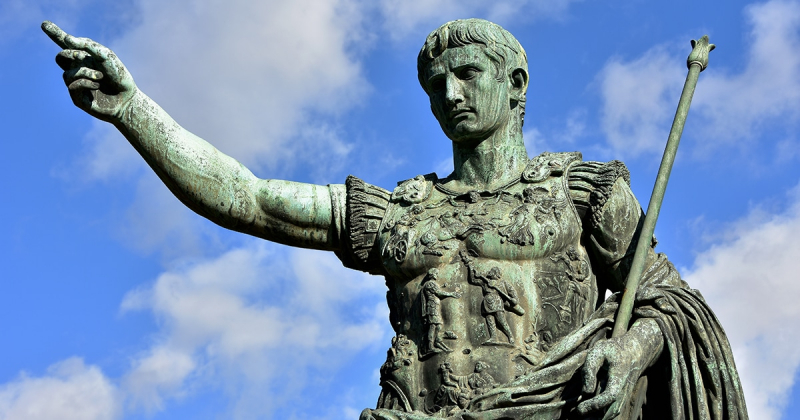
Photo: https://mymodernmet.com/ -
Augustus was the first Roman Emperor, yet his Empire would not have existed if another crucial figure had not stepped up. Augustus' close buddy Marcus Agrippa later became a member of the imperial family. He was a general, admiral, statesman, engineer, and architect, among other things. Most importantly, during the turbulent aftermath of Caesar's assassination, Agrippa was fiercely loyal. In other words, Augustus needed Agrippa to help him construct an empire. Agrippa was crucial in rallying the soldiers to Octavian's cause, and he played a key part in Octavian's victory in the civil war. He also persuaded the Senate to give the imperial title of Augustus to Octavian. The Senate was therefore convinced to give Augustus charge of the frontier provinces and, more significantly, the legions in the area. Marcus Agrippa also directed the emperor's massive construction project, which transformed Rome from a "city of bricks" to a "city of marble."
Agrippa accomplished all of this while avoiding the limelight, power, or fortune. Augustus, predictably, rewarded his friend once he ascended to the throne. After the emperor, Marcus Agrippa rose to become Rome's second most powerful man. Agrippa married Julia, Augustus' only daughter, and he was welcomed into the imperial family. Agrippa's three boys were considered potential heirs because the emperor had no other children, but their early death forced Augustus to rethink his mind. Agrippina, Agrippa's younger daughter, would play a key role in the Julio-Claudian dynasty's establishment, as both her son Caligula and grandson Nero became Roman emperors. Augustus paid Agrippa one final respect after his death by interring his body in his mausoleum.
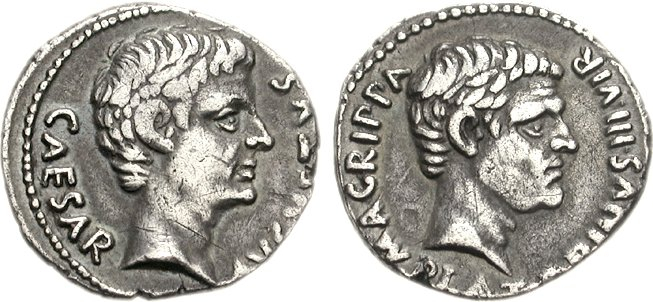
Photo: https://commons.wikimedia.org/ 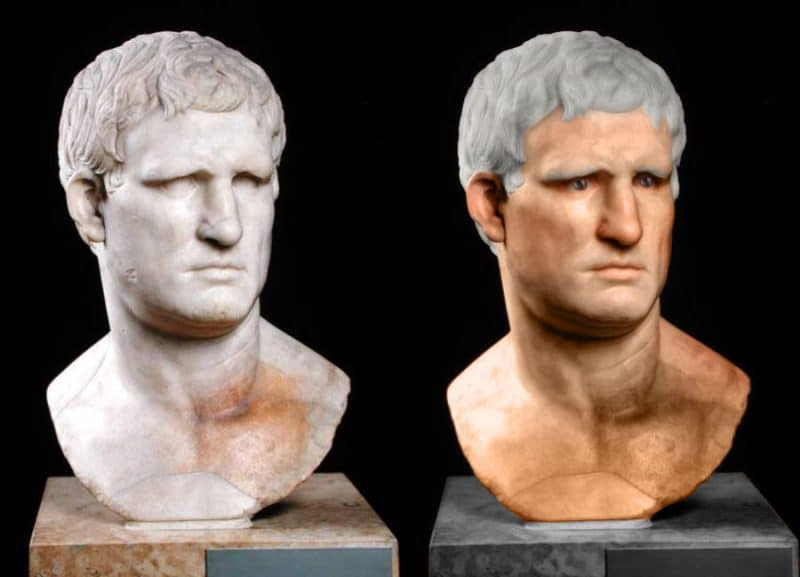
Photo: https://welackdiscipline.com/ -
Another fact about the first Roman Emperor is he married three times but only had one child, Julia. Julia's life was complicated from the moment she was born. She was taken away from her mother Scribonia and placed in the care of Octavian's third wife, Livia. Julia's social life was closely regulated under Livia's supervision. She was only allowed to speak with those who had been personally screened by her father. Octavian loved his daughter, despite appearances, and the draconian measures could have been the product of his unusual position. Julia was an enticing target as the sole child of one of Rome's most powerful figures. After all, she was the only one who could give Augustus a legitimate heir, which became even more crucial once he became the first Roman emperor.
Julia was thus an effective instrument for forming partnerships. Her first marriage was to none other than Agrippa, Augustus' greatest buddy. Julia was 25 years younger than her husband, yet the couple appears to have had a happy marriage. The union resulted in the birth of five children. Sadly, all three sons died far too early. Augustus married Julia to Tiberius, his stepson, and designated heir, after Agrippa's death in 12 BCE. Julia, who was stuck in an unpleasant marriage, began having affairs with other men.
Augustus was put in a tough situation as a result of her scandalous escapades. The emperor could not afford to have a promiscuous daughter since he actively pushed family values. Julia was imprisoned on a small island in the Tyrrhenian Sea rather than being executed (one of the penalties for adultery). Augustus later lightened Julia's sentence by moving her to the mainland. He, on the other hand, never forgave his daughter for her sins. Julia, who had been disowned and barred from entering the capital, remained at her home until her death. Augustus ordered that his only daughter not be buried in the family mausoleum.
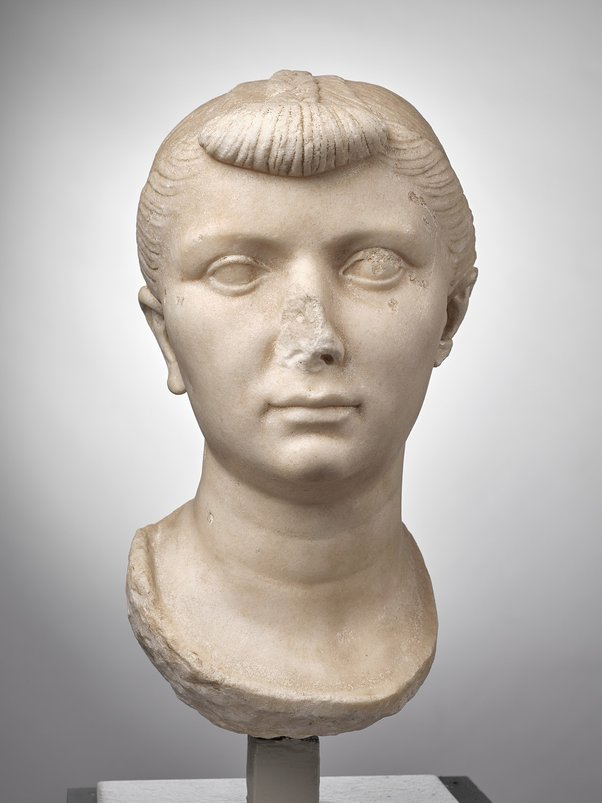
Photo: https://www.quora.com/ 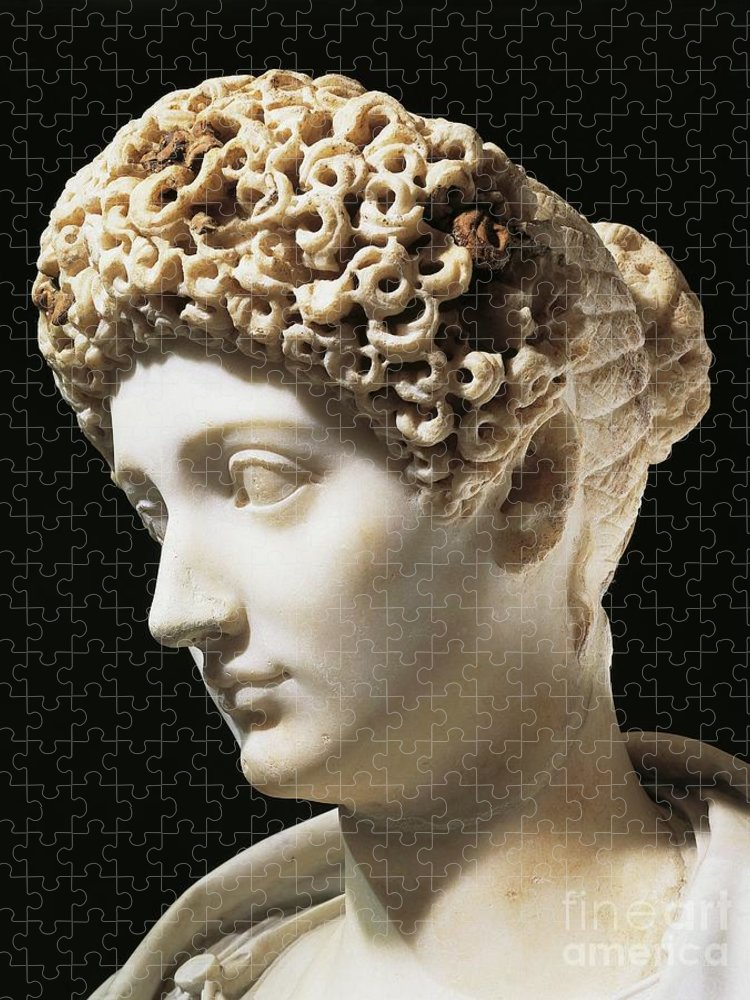
Photo: https://pxpuzzles.com/ -
Augustus, like his adoptive father Julius Caesar, lacked a son of his own. Only males may inherit the family money in Roman society. The emperor spent a lot of time and energy attempting to choose a successor because he only had a daughter (a difficult one at that!). Augustus' first option was Marcellus, his nephew, to whom he married Julia off in 25 BCE. Marcellus, on the other hand, became ill quickly and died only a few years later, at the age of 21. Finally, Julia's marriage to Augustus' friend Marcus Agrippa (who was 25 years her senior) resulted in the birth of much-needed heirs. Augustus, unfortunately, could only stand by and watch as his adopted boys died one by one. Gaius, 23, died first, while on a campaign in Armenia, and was followed by Lucius, 19, who died of an illness contracted while in Gaul. Postumus Agrippa, Agrippa's third son, was the last viable claimant. The emperor, however, was obliged to banish the last representative of his dynasty due to the boy's vicious disposition.
Augustus was confronted with a difficult position. The 71-year-old emperor, who was nearing the end of his life, was in desperate need of a legal successor. If he fails, his budding Empire may crumble, plunging Rome into yet another civil war. Tiberius Claudius was Augustus' last hope, even though he was not Augustus' first choice. Tiberius, Livia's first husband's son, was a successful general. He scored a series of military successes on the Rhenian and Danubian frontiers with his similarly successful (but prematurely deceased) brother Drusus. The recluse Tiberius, on the other hand, was adamant about refusing the purple. He didn't have a choice, unfortunately. Augustus compelled Tiberius to divorce his loving wife and marry Julia instead before designating him his heir. The throne would prove to be a terrible burden for the new emperor, and the loveless marriage would not endure long. Augustus, on the other hand, was unconcerned. The first Roman emperor died in 14 CE, believing that his legacy would be safe.
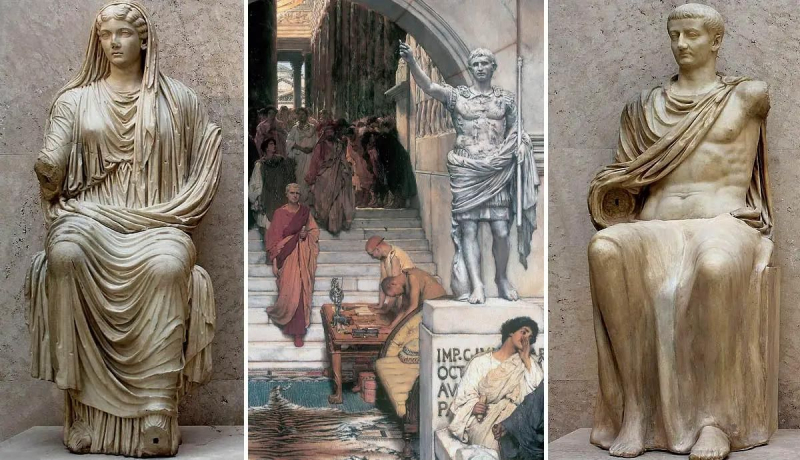
Photo: https://www.thecollector.com/ 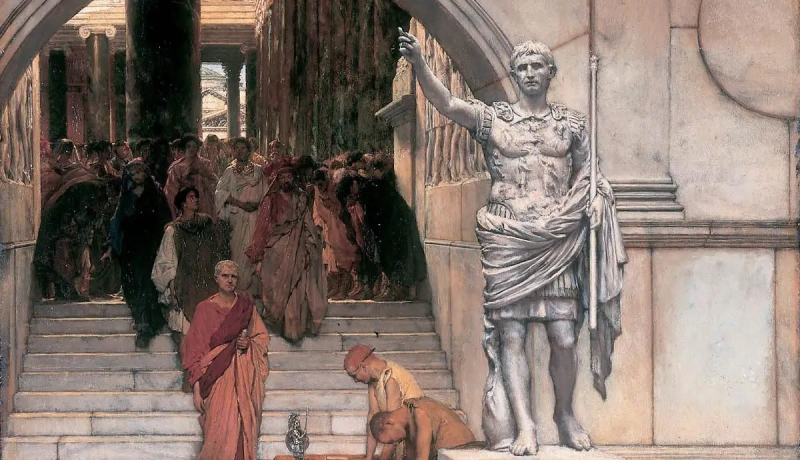
Photo: https://www.thecollector.com/ -
Following Caesar's death, Augustus assembled an army and went to battle with Mark Antony, Caesar's former deputy who saw himself as the conqueror's political heir as well. Augustus marched to Rome after winning his first battle against Antony and was chosen consul, the highest office in the Roman Republic. He then formed the Second Triumvirate, in which he, Antony, and Marcus Aemilius Lepidus agreed to divide Rome's territory among themselves. They linked together to beat Caesar's assassins as one of their first orders of business.
Meanwhile, Antony married Augustus' sister and Augustus married Antony's stepdaughter to cement the alliance. However, neither the marriage nor the trio lasted. The final break came in 32 B.C. when Augustus used an illicitly obtained copy of Antony's will to rail against him and his high-profile mistress, the Egyptian queen Cleopatra. Augustus blockaded Antony's force off the western coast of Greece during the civil war that ensued. Even though Antony and Cleopatra escaped to Egypt, the majority of their army surrendered, and they both committed suicide as Augustus approached them. To add salt to injury, Augustus ordered the assassination of Antony's heir, as well as a boy Cleopatra had with Caesar.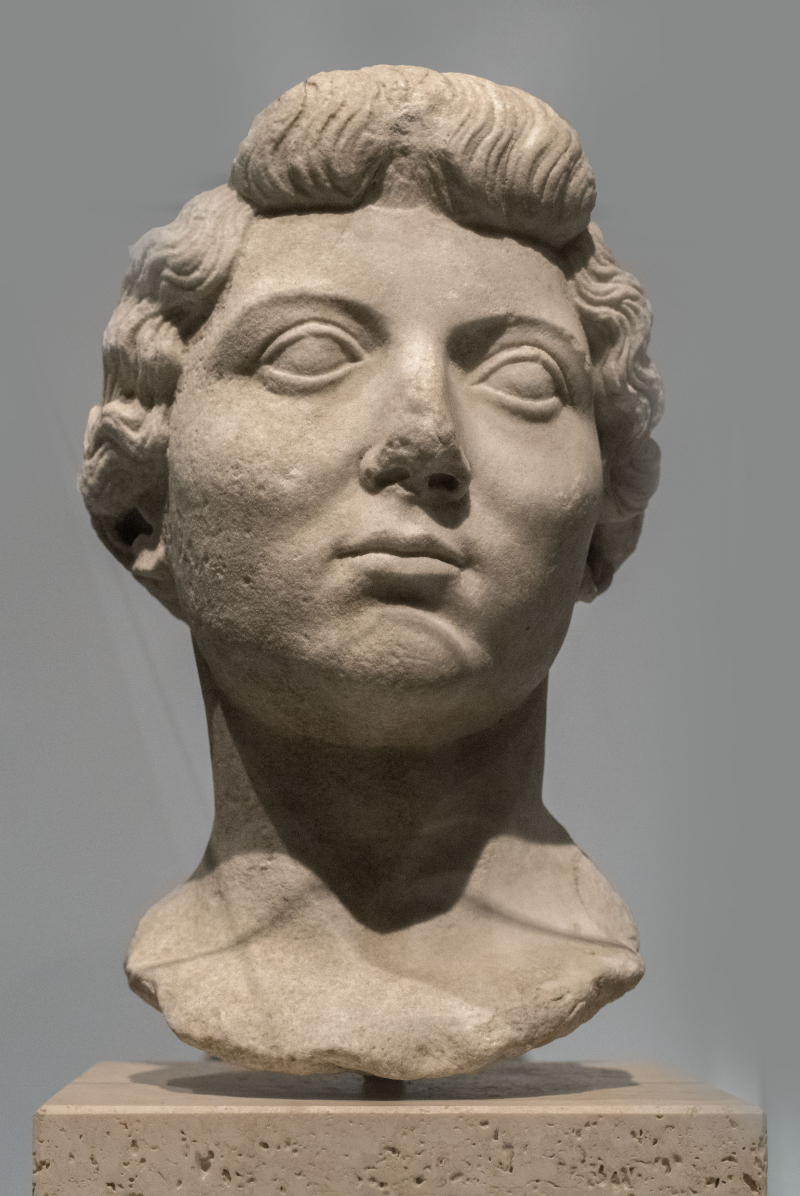
Photo: https://commons.wikimedia.org/ 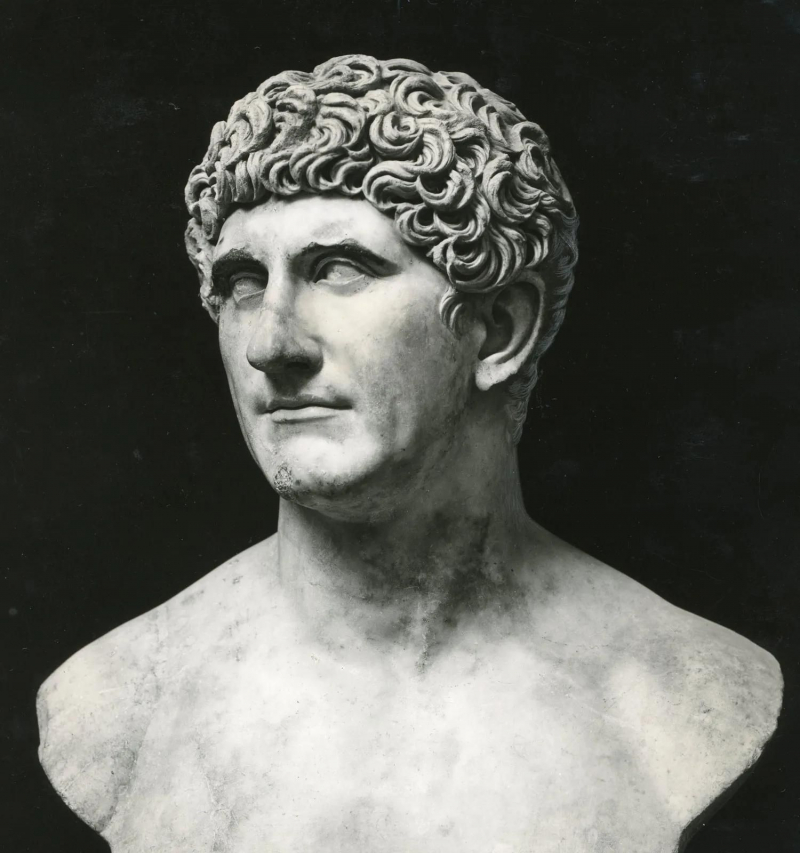
Photo: https://www.britannica.com/ -
Augustus began consolidating his rule, upgrading Rome's infrastructure, and beautifying the city after defeating his foes. He also wanted to expand the empire's borders, taking control of Egypt, northern Spain, the Alps, and much of the Balkans. In Germany, progress was made until three legions were killed out in an ambush in A.D. 9, forcing the Romans to retreat west of the Rhine River. According to a Roman historian, when Augustus learned of the defeat, he repeatedly slammed his head against the wall and roared at the general in charge to "give me back my legions." Augustus spent years in Spain, Gaul, Greece, and Asia as part of his expansion ambitions. Yet he was not much of a combatant himself, frequently falling ill on the night of battle and relying largely on his childhood buddy Marcus Vipsanius Agrippa for strategy.
Augustus virtually doubled the extent of the empire during his 40-year reign, gaining lands in Europe and Asia Minor and forging alliances that let him rule from Britain to India. He spent a lot of time outside of Rome, cementing control in the provinces and establishing a census and taxing system that connected the empire's farthest reaches. He reshaped Rome with both grand (a new forum) and practical gestures, expanding the Roman network of roads, founding the Praetorian Guard and the Roman mail service, and establishing the Praetorian Guard and the Roman postal service (police and fire departments).
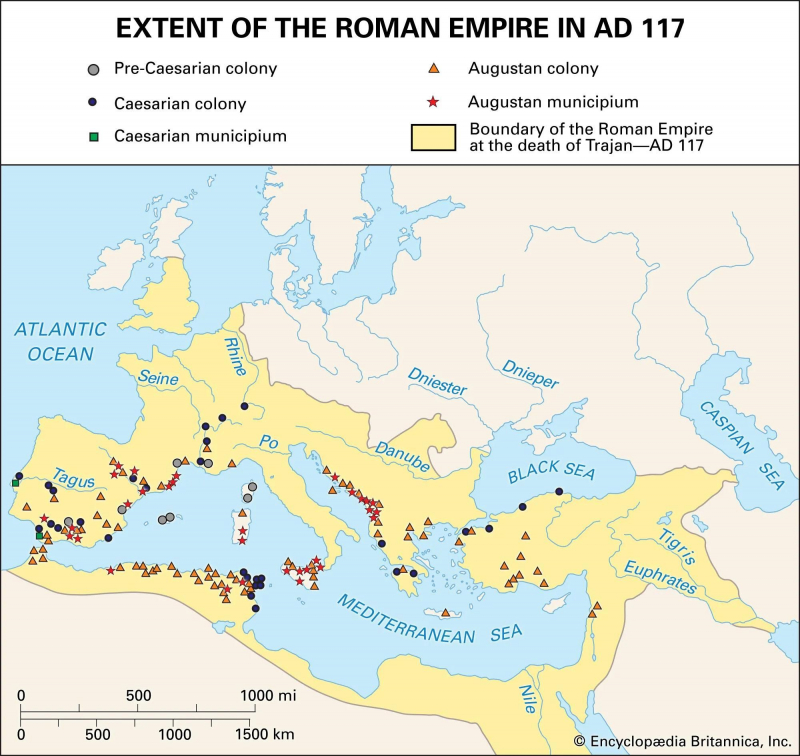
Photo: https://www.britannica.com/ 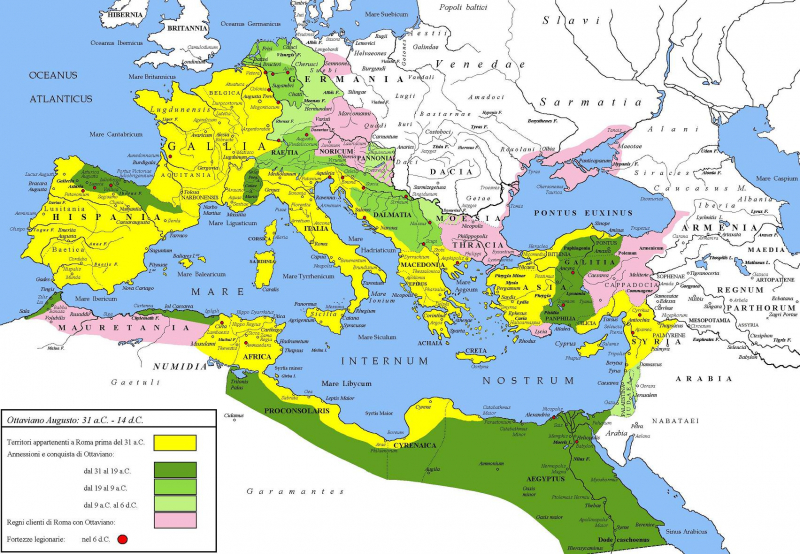
Photo: https://www.worldhistory.org/ -
Augustus Caesar died in the town of Nola in Campania, Italy, on August 19, 14 AD. He was claimed to have died in the same room as his father. His health had been deteriorating in the months leading up to his death. "I found Rome a city of bricks and left it a city of marble," he famously said. From 27 BC until 14 AD, Augustus controlled the Roman Empire for 41 years. He is one of the most powerful Roman Emperors, and many consider him to be the greatest. After his death, he was deified, and his adopted surname, Caesar, and the title Augustus became the permanent titles of Roman Emperors for the next fourteen centuries. In honor of him, the eighth month was dubbed August in 8 BC. Augustus is claimed to have chosen the month because it coincided with several of his major victories, notably the conquest of Egypt.
The Senate decided to rename the month of Sextilis after Augustus in 8 B.C. when Rome was in a period of relative peace and prosperity. Augustus had first become consul and then achieved his final victory over Antony and Cleopatra during that month, according to the Senate's edict. It came after July (originally Quintilis), which had lately been renamed in honor of Julius Caesar on the calendar.
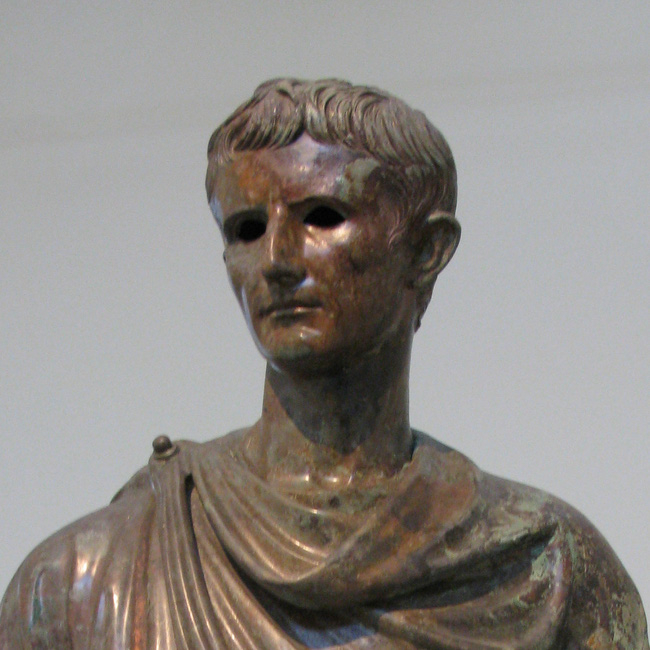
Photo: https://danviet.vn/ 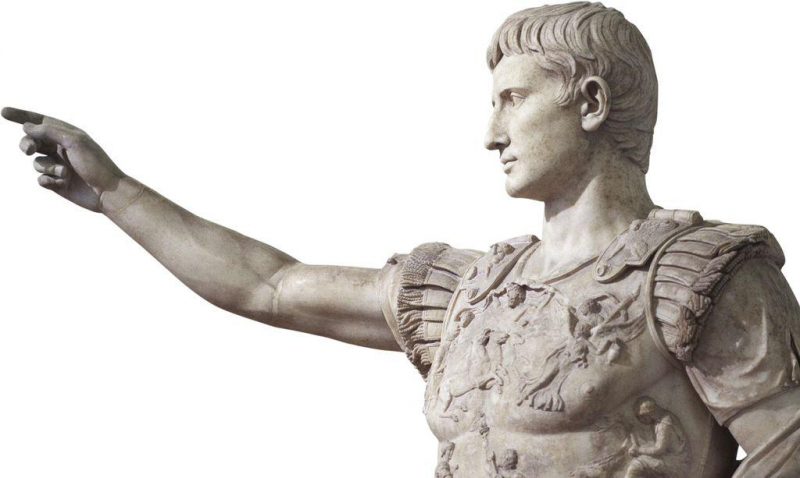
Photo: https://fr.scribd.com/












